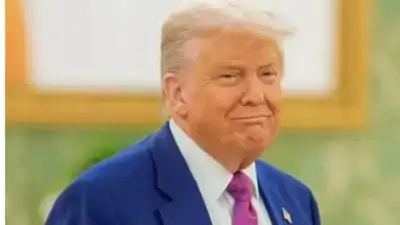
BERLIN: Since President Donald Trump retook the Oval Office, leaders across Europe have prodded him to forcefully back Ukraine in its fight against Russia's invasion. In recent weeks, some of them tried a new approach in private conversations with a president who they know often responds well to flattery.In exchanges with Trump, those leaders, including Friedrich Merz, the German chancellor, praised the president for sending US bombers to deliver a major blow to Iran's nuclear programme, according to two European officials familiar with the matter. They told Trump he could do something similar in Ukraine - not with bombs, but with a fresh batch of penalties aimed at crippling Russia's economy.The president finally appears to be warming to the idea.Merz and his counterparts in France, Britain and Italy have publicly told Trump that new US sanctions could force President Putin of Russia to enter serious negotiations about ending the war. Without them, Putin has been escalating and prolonging Russia's attacks in an attempt to break Ukraine's defences. Those escalations appear to have frayed Trump's patience with Putin. On Tuesday, fresh from what he portrayed as a frustrating phone conversation with Putin, Trump said he was "very strongly" considering supporting a bipartisan Senate bill that would impose severe sanctions on countries that purchase Russian oil.
Those countries include China, India, Brazil and even some members of the EU.Oil production is a driver of Russia's economy and a crucial source of revenue for Putin's war machine. Western leaders have been trying to choke off those revenues since Russia's full-scale invasion of Ukraine in 2022, including with sanctions. They have not succeeded as well as they had hoped. A new effort to target the sector is included in the bill, which was offered by Senators Lindsey Graham (Republican) and Richard Blumenthal (Democrat).
It has 83 supporters in the Senate.The top Senate Republican said Wednesday that a vote on the bill could come as soon as this month. Momentum has been building on Capitol Hill behind the measure. The majority leader, Senator John Thune (Republican), said Wednesday that "substantial progress" had been made on "overwhelmingly bipartisan Russia sanctions legislation to enhance Trump's leverage at the negotiating table and help end the war in Ukraine.
" He said the measure could come to a Senate vote "as early as this work period," referring to the period between now and Aug 1, when the chamber departs for a monthlong recess. Some analysts have suggested that the legislation, if approved, could pack a much larger punch than any previous sanctions imposed on Russia. But other analysts warn that it would take time for the bill's penalties to hit Russia hard enough to force Putin to negotiate, and that Trump might not follow through with many of them. Russian officials do not appear to be concerned about the prospect of Trump backing a new round of sanctions.

 6 hours ago
44
6 hours ago
44




























 English (US)
English (US)